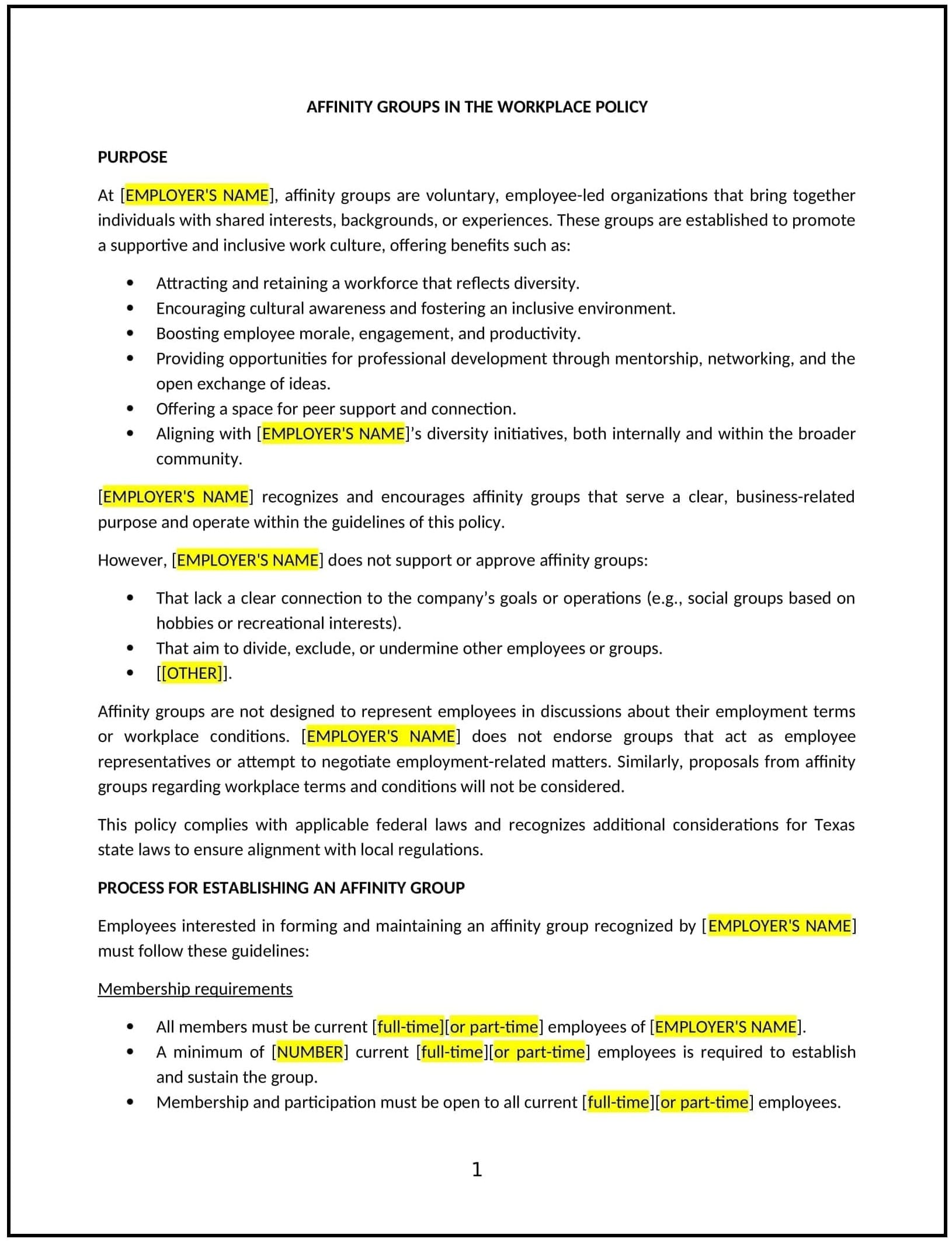Affinity groups in the workplace policy (Texas): Free template
Got contracts to review? While you're here for policies, let Cobrief make contract review effortless—start your free review now.

Customize this template for free
Affinity groups in the workplace policy (Texas)
In Texas, an affinity groups in the workplace policy supports the creation and operation of employee-led groups that promote diversity, inclusion, and shared interests. This policy provides guidelines for establishing, managing, and participating in affinity groups, ensuring alignment with organizational values and compliance with state and federal regulations.
The policy defines the purpose of affinity groups, outlines participation expectations, and establishes procedures for creating and maintaining these groups.
How to use this affinity groups in the workplace policy (Texas)
- Define the purpose of affinity groups: Clearly specify that these groups aim to promote inclusion, networking, and shared interests without disrupting workplace operations.
- Establish guidelines for formation: Provide steps for creating an affinity group, including submitting a proposal, gaining management approval, and defining group objectives.
- Outline participation expectations: Clarify that participation is voluntary and should not interfere with employees’ job responsibilities or workplace professionalism.
- Include funding and resources: Detail any support provided by the organization, such as meeting spaces, communication tools, or budget allocations.
- Support compliance: Align the policy with Texas labor laws and federal anti-discrimination regulations to ensure lawful implementation.
Benefits of using an affinity groups in the workplace policy (Texas)
- Promotes inclusion: Encourages diversity and fosters a sense of belonging among employees with shared identities or interests.
- Supports compliance: Promotes adherence to Texas laws and federal regulations, such as Title VII of the Civil Rights Act.
- Enhances employee engagement: Provides a platform for employees to connect, share experiences, and collaborate on initiatives.
- Improves morale: Demonstrates the organization’s commitment to supporting employee-led initiatives that align with workplace values.
- Encourages collaboration: Facilitates cross-departmental networking and knowledge sharing through group activities and discussions.
Tips for using an affinity groups in the workplace policy (Texas)
- Communicate the policy: Share the policy with employees during onboarding and provide ongoing education about the purpose and benefits of affinity groups.
- Train managers: Equip supervisors with the knowledge to support affinity groups while ensuring they align with workplace policies and goals.
- Monitor group activities: Ensure that affinity group initiatives remain inclusive, professional, and aligned with organizational objectives.
- Encourage employee participation: Promote the availability of affinity groups and highlight their value in fostering a supportive workplace culture.
- Review periodically: Update the policy to reflect changes in Texas laws, workplace practices, or employee feedback.